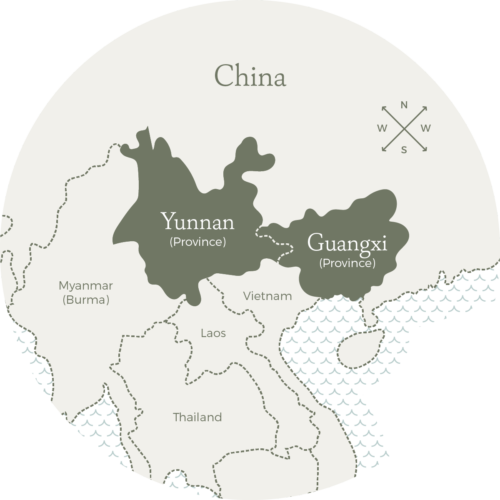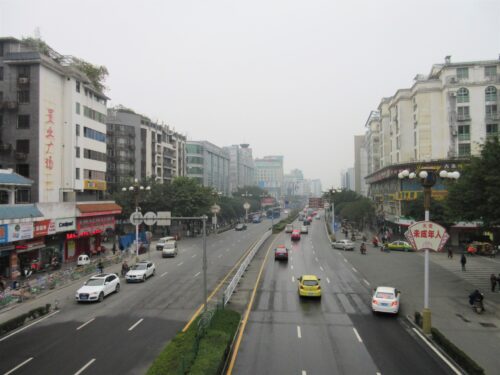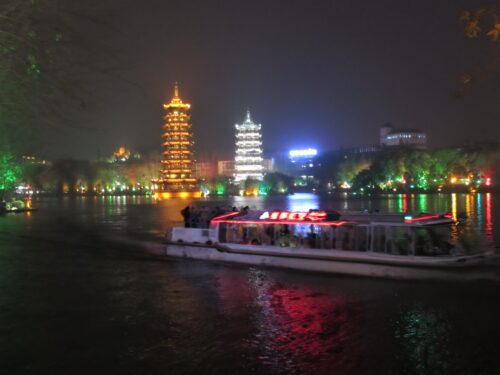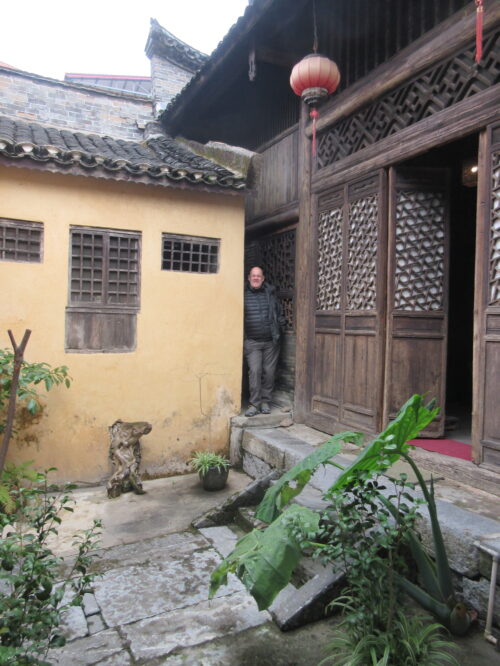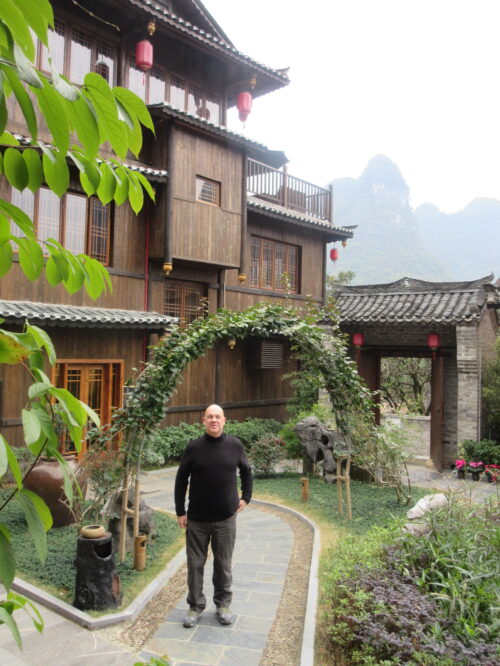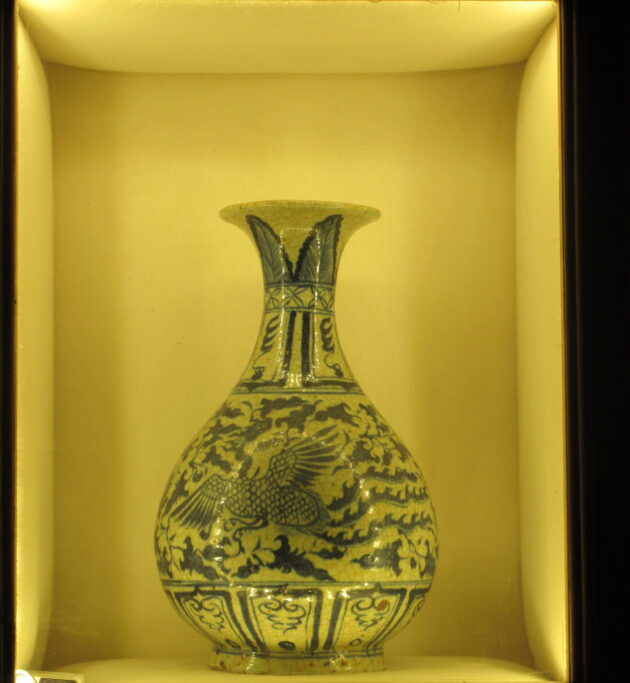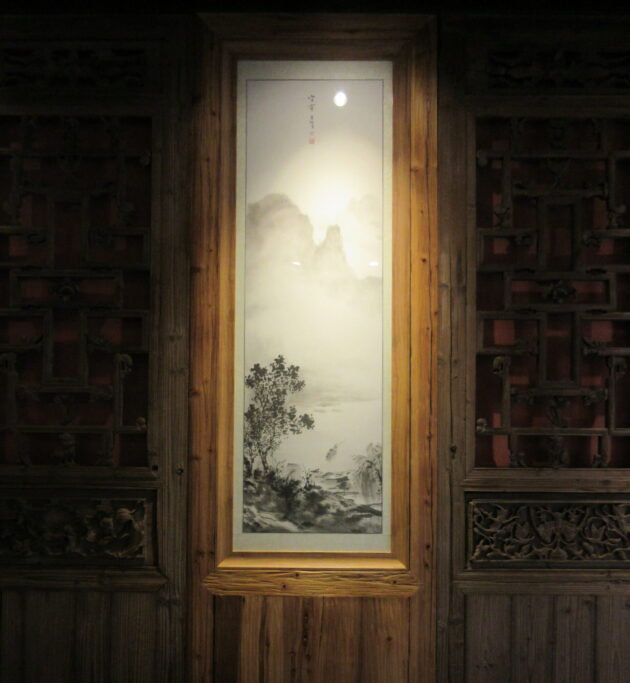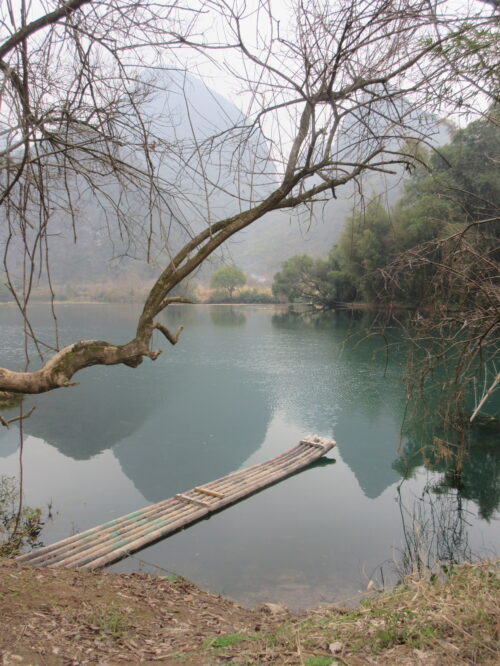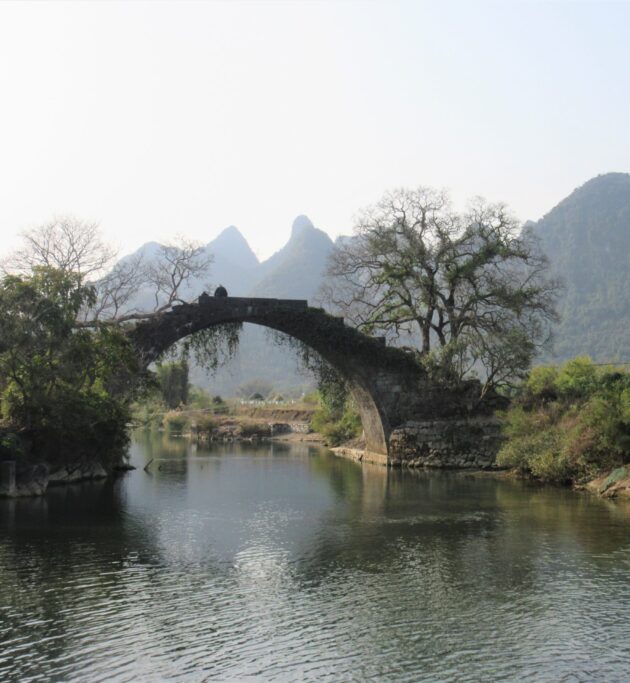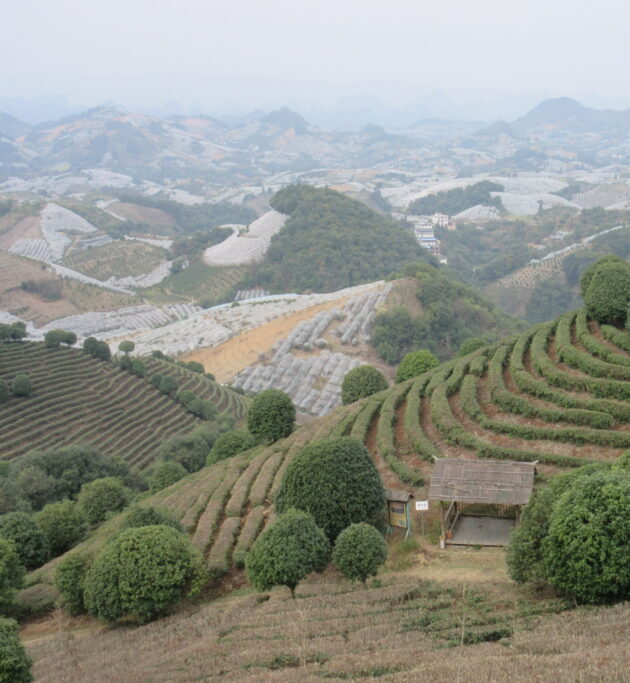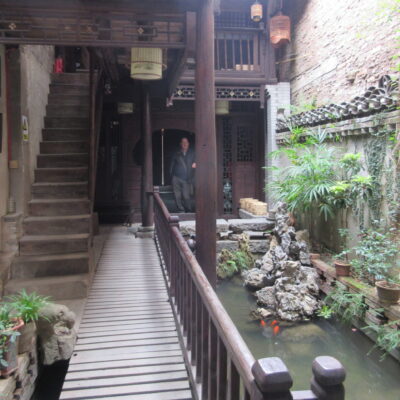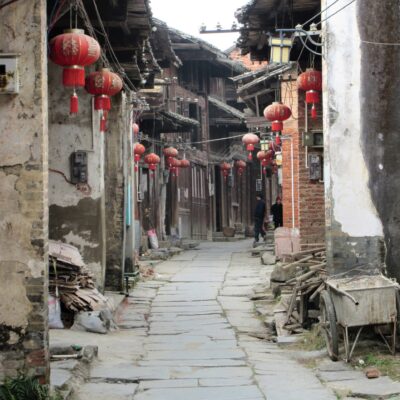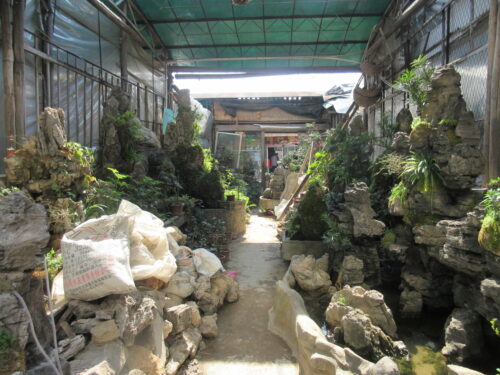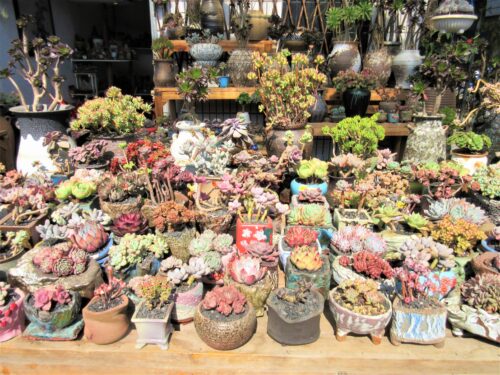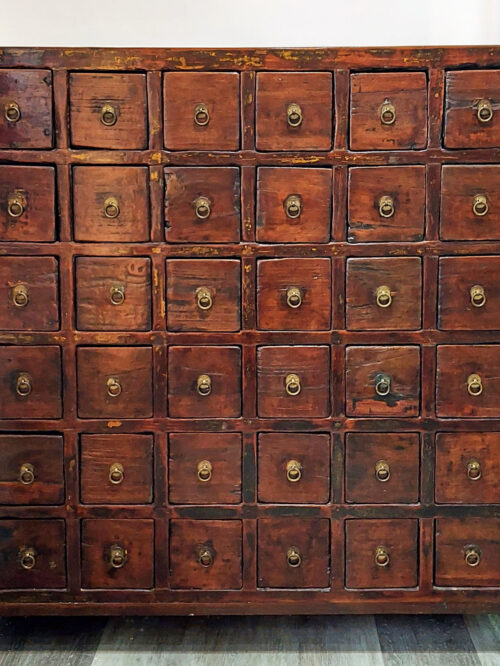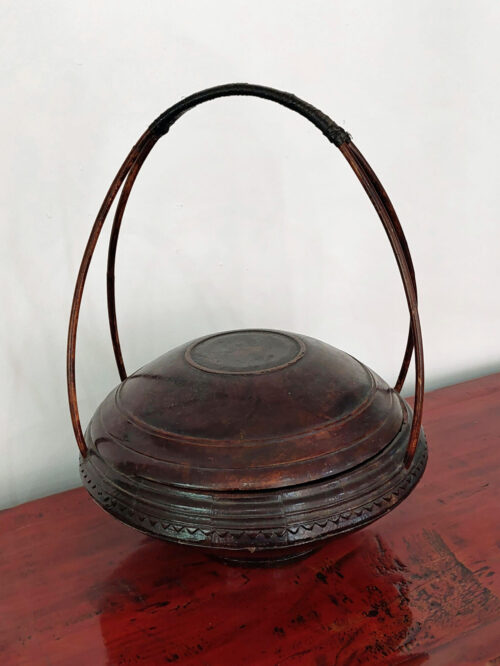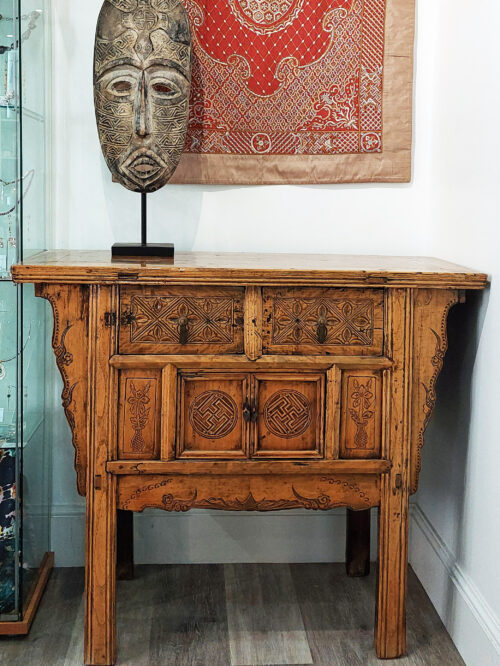Guilin City
Our 2018 sourcing trip took us back to China – once again to a less-travelled region – this time the south-central province of Guanxi. A region encompassing some of the most beautiful, bucolic scenery in the country with tiny ethnic-minority villages surrounded by ancient terraces and karst peaks. Guangxi promised to be an adventure and a source of rare and unusual treasures..
Our journey started in Bangkok where the Chinese consulate (as usual) questioned the reasons for our multiple passport stamps for Iran, Russia and Turkey and required various letters of re-assurance that we are not connected to international terrorism, journalism or NGOs!
Once sorted we entered the country at Guilin, a relatively small provincial city of 5 million people.
It surprised us by its scale, modernity and cleanliness – everything was huge and built for the future – the roads were perfect and wide and occupied by (mostly) brand-new cars; these flanked by further lanes reserved for motorbikes and local delivery vehicles (both electric-powered) as well as the ubiquitous “boris-bikes” that are actually well-used here.
A striking and welcoming mixture of traditional old areas and brand new development that seems to work really well – no traffic-jams, no air pollution and plenty of green space and sweet-smelling osmanthus trees after which the city is named – Guilin oozed prosperity and optimism and we found its inhabitants unfailingly patient, friendly and kind.
“I used to walk several miles to school, my parents were working in the fields but now things are different and tomorrow will be even better”
an oft-heard story in China, spoken with a gentle pride and an enviable optimism.
Yangshuo County
After a few days exploring Guilin (including our traditional visit to an overseas hospital – superb, by the way) we planned to see what it’s like to live in the countryside. Travelling in China is easy even if you don’t speak a word of Mandarin, so with the help of a translator app we set off to the village of Langshi ( population 300 Yao people) on the banks of Yangdi river. We were excited about staying there as the village has its own, unique language and our accommodation would be a beautiful, traditional Qing dynasty house reached by crossing the river either by bamboo raft or a little boat operated by a notoriously grumpy boatman.
We arrived at the house late afternoon, welcomed by a smiley local man – a housekeeper/doctor/goatherder – who showed us around the house, organised some food … and left for his duties around the village. What we didn’t realise is that traditional house means no glass on the windows and no heating even in the middle of the winter. It snowed while we were there and hit -2C outdoors…. and in!
Now, we’re quite hardy (Russian and Northern English, after all) but after a couple of freezing nights spent wearing every piece of clothing we had with us, we had to relocate to an equally old guesthouse a few miles away, after checking that they had heating and windows.
This turned out to be the most beautiful, friendly and comfortable accommodation we had ever stayed in .. anywhere.
Common rooms and bedrooms were decorated with superbly-curated pieces of ceramics, paintings and carvings which wouldn’t have been out of place in museums and, the bathroom, oh, the bathroom….
This became our base for forays, on foot, by bus and by car to various areas of the stunning Yangshuo countryside.
Our wanderings followed the banks of unspoilt rivers winding between the stunning limestone karst peaks for which the area is famous.
There’s a particular colour to the bamboo, pine and osmanthus- covered peaks in this region – a blue/grey/green which is quite magical – and makes the swathes of colour from the cultivated parts, given over to tiny oranges and mangoes and the utterly addictive kumquats, even more striking.
It’s a rare and beautiful place.
But not a holiday! We ventured into little villages and the smaller towns in the region, hoping to stumble on some undiscovered treasures to bring back.
A couple of times we found interesting antique items – one example was a gorgeous and rare textile piece from one of the minority peoples … but the price reflected the enormous prices that Chinese collectors now pay for such items – it wasn’t really on for us.
As we neared the date of our departure – to avoid the logistical craziness of Chinese New Year – we feared we’d be leaving China empty-handed. Heading back to Guilin for the final couple of days we had a lead which sounded unlikely but we had learned that often, in the most unlikely places, one could find treasure…….
A chance conversation with a local noodle-seller (thank goodness she had some English)
Our Mandarin consists of little more than “Hello” “thankyou” “how much” and “toilet” (very important!)
and a suggestion…..
“On the bus route from Yangshuo county towards Guilin, there’s a large flower and bird market – at the back of the market there are antique traders and workshops that often have unusual and interesting items”
So we hopped off the bus..…
…and, having got off at the wrong place and with no idea where we were, we caught a taxi to the market.
What a shame we don’t sell plants!
The market was wonderful – selling everything from the most exquisite bonsai to complete, and exotic, gardens.
Wandering the lanes was a joy and, eventually, almost by accident, we found the area we had been told about – a cluster of collectors, traders and artisans with a trove of unusual, beautiful and rare items from furniture to jade, textiles to tea sets from across the province.
I think we might have been the first westerners to have found their way to this place, judging by the expressions of surprise but, again, even in the midst of some serious negotiation and trading, we found the peoples to be gracious, patient and friendly.
However, one thing that was inflexible.
Absolutely no photographs allowed !
So here are some more plants.
As always, the logistics of shipping from remote parts of the globe to the Isle of Wight was “interesting” but a couple of months of nail-biting later and we unpacked some rather special pieces at our storage at Osborne House.
Deepest Guangxi to East Cowes – now there’s a journey.
This had been our second foray into provincial China for Drift and, once again, we had been struck by how friendly, kind and decent were the Chinese people we had met and how advanced, clean and safe the towns and cities we visited.
Completely unlike the usual portrayal.
We rather like China.



